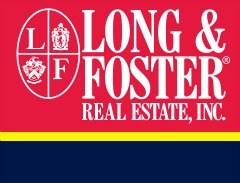 Pocket Listings: The Good and Bad
Pocket Listings: The Good and Bad
✉️ Want to forward this article? Click here.
If you’ve recently bought or sold a house, you’ve likely heard of pocket listings. Pocket listings, also called private exclusive listings, are properties not advertised to the public on the multiple listings service (MLS) but instead are sold behind the scenes by word of mouth. According to Long & Foster’s Holly Worthington, private sales are on the rise in some cities.

Call L&F at 202-363-9700
or 202-483-6300
As the managing broker of two Long & Foster offices in DC, Worthington has observed this phenomenon, and she explained to UrbanTurf the advantages and disadvantages of this growing national trend. Though pocket listings can be seductive and even useful in some situations, she believes that open market competition is still the key to a healthy, fair real estate market.
Advantages
- Some homebuyers see great advantage in snagging a property before it hits the market. It means they don’t have to compete with other buyers, and it makes them feel privy to insider information. “The fact that the property is not in the MLS makes it an exclusive secret that only they and a few agents are aware of,” explains Worthington.
- For sellers (including celebrities) who’d rather not have photos of their homes disseminated online, a private sale will keep the contents of their walk-in closet or their funky bathroom décor from the prying eyes of the Internet.
- Selling privately also means that the owner of an overpriced home can quietly feel out possible demand for their property and shop around for buyers without racking up “days on market” in the MLS, which is the most common trigger for lower offers from buyers.
Disadvantages
- Sellers who list privately miss out on the advantages of natural market competition, which include a greater variety of buyer types and the chance for competition to both drive up sale prices and improve the terms of the sale. “From the perspective of a broker who has known buyers who would have paid more than the final sale price of what a private listing sold for, I can say that the practice of private exclusive listings can be harmful to the seller,” says Worthington. “Multiple offers can most often drive home sale prices up dramatically.”
- Sellers should be aware that privately listing a home with the goal of screening interested buyers is a violation of federal and local Fair Housing laws, which could interpret the action as discriminatory. Sellers who list their home privately must be careful to remain impartial.
The pros and cons of pocket listings also have to be weighed against the personal agenda of agents, who may put their own self-interest ahead of their client’s — which is against the real estate license law. For example, listing agents may advocate listing a home privately because they believe they can find a buyer themselves and earn the entire commission without having to share it with a buyer’s broker. But who advocates for the buyer in these scenarios? Brokerages who encourage sellers to list privately may be hoping to sell the property within their own firm. This is called selling a property “in-house” and it means that the brokerage firm keeps both the listing side and the selling side commission. That’s great for the broker — but may not be for the seller whose property has not been exposed to the entire marketplace.
Meanwhile, buyer agents may use access to private listings as a lure to get buyer clients, warning prospective buyers that they will miss out on this “secret inventory” if they work with a different agent who is not “in the know.”
Ultimately, it is difficult to prove exactly how privately selling homes influences their prices. “Pocket listings are only a slim percentage of the sales in our marketplace,” says Worthington. “And we have no data to evaluate them precisely because they are a secret! But competition has historically always led to higher prices for sellers — the more buyers the higher the price. The economics of demand make this obvious.”
If you are interested in discussing this topic, get in touch with Holly Worthington at 202-363-9700 or holly@lnf.com.
See other articles related to: long & foster, sponsored articles
This article originally published at http://dc.urbanturf.production.logicbrush.com/articles/blog/pocket_listings_the_good_and_bad/6443.
Most Popular... This Week • Last 30 Days • Ever

This week’s Best New Listings includes a loft-like one-bedroom in Adams Morgan and ... read »

While homeowners must typically appeal by April 1st, new owners can also appeal.... read »

A significant infill development is taking shape in Arlington, where Caruthers Proper... read »

A new mixed-use development would bring hundreds of new residential units and a healt... read »

A residential conversion in Brookland that will include reimagining a former bowling ... read »
- Best New Listings: 100 Years Old Near The Park
- How to Appeal Your DC Property Tax Assessment
- A 15-Story, 310-Unit Development Pitched Off I-66 In Arlington
- 590 Apartments, Health/Wellness Club Pitched For 3-Building Bethesda Development
- Two-Year Extension Sought For Brookland Bowling Alley Conversion
DC Real Estate Guides
Short guides to navigating the DC-area real estate market
We've collected all our helpful guides for buying, selling and renting in and around Washington, DC in one place. Start browsing below!
First-Timer Primers
Intro guides for first-time home buyers
Unique Spaces
Awesome and unusual real estate from across the DC Metro














